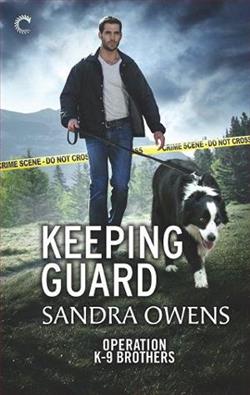Page 111 of The Thought of You
“I’m actually surprised you haven’t asked about it.”
I turn back to Sable. “I’m sorry?”
“I expected you to be more involved with your classroom, to be honest.” She giggles. “I imagined clipboards and itineraries for the remodel, and I was definitely prepared for daily briefs or something.”
Oh, crap.
That does sound like something I’d do. What doesn’t sound like me is quietly letting the professionals do their jobs without intervening just so I could make eyes at the PE teacher every day.
“Well.” I swallow as another dribble sounds, but this time, it’s much louder. It’s like the basketball bounces inside my head, pounding against my brain. “I’m a team player,” I manage. “I didn’t want to overstep. I’m good at a lot of things, but construction is a whole other beast.”
We share a laugh, after which she nudges me with her elbow. “I appreciate your patience, and I’m so thankful for how well you’ve made this new arrangement with Owen work.”
“Just doing my job,” I say with a jut of my chin upward.
“You should see what’s going on with the other teachers who needed to team up. Revenge plots, broken thermostats, and missing tea bags.” She shakes her head. “We should have coffee this weekend. I’ll tell you all about it, and maybe I could even pick your brain to see how you’ve managed to be so successful. I mean, you and Owen have it all figured out. You’re a great team.”
“We’re just co-workers,” I blurt.
Her phone screen lights up with an incoming call, and she touches my elbow as she says, “Keep up the great work, and oh—I know I’ve said it before, but it’s worth mentioning again. I just love your new hair.”
She strides away, and I clutch my stomach as a wave of nausea rolls through it.
This is the first time I don’t experience an adrenaline rush from her kind words about me.
Am I sick? No. I’m fine. She was simply complimenting me—it’s nothing new. She doesn’t suspect a thing between Owen and me.
From the sounds of it, I’m just making her life easier with these temporary classroom assignments, and that’s all.
No need to panic.
Except the nagging urge to throw up doesn’t leave me the entire morning. During the middle of second period, I even have to rush to the locker room to hurl into a toilet, but it’s a false alarm.
My pale complexion is real, though, and it isn’t because of the fluorescent lights above the bathroom mirrors.
I’m just having a minor crisis, but it’s nothing I can’t handle. I’ve basically trained my whole life for easy decision-making and an obscene amount of pressure. I can handle what comes next with Owen and me, no matter what it is.
When the bell rings for fourth period, and the students shuffle out of the gym, I take a seat next to my large trusty tote and retrieve a protein bar. One bite, though, and I’m ready to vomit again.
It’s my favorite snack, but right now, I couldn’t want it any less than if it were a bag of dirt.
I wrap up the end and stick it into a baggie in my tote, my shoulders slumping. It takes everything in me not to slither to the floor and lie down. To my surprise, nothing sounds better than a nap on this disgustingly dusty floor.
But students file in and pull me out of my weird trance. I have a job to do. Now is not the time to fall apart just because my fantasy life and reality are colliding.
After a quick greeting, I open my textbook to the short story of the week to break up the long reading assignments since we finished The Scarlet Letter. I use my pointer finger to trace the title at the top of the page and say, “‘The Tell-Tale Heart’ by Edgar Allan Poe.” I swallow with great difficulty like I’m trying to force down a cotton ball. “Unreliable narrators. Voice. Tone.”
The students blink back at me from the bleachers, expectant expressions mixed in with bored ones too. Nothing out of the ordinary, but my thoughts are jumbled. It’s as if I’ve forgotten to speak in full sentences, with a subject, verb, and transitions.
“Let’s start with the narrator.” I cough into my palm, but it does little to alleviate the pressure in my throat. “How would you describe him?”
I nod toward the first kid to raise his hand. “Delusional.”
“And what gives you that impression? What examples could you use?” I press.
“He says in the story that he’s sane, but he also kills an old man in his own bed,” he answers, his eyes wide.
“Good. Good.” I pace in front of the bleachers—bad idea. It feels like I’m rocking on a boat, and my sea legs haven’t quite matured. “Let’s dive deeper into this narrator.”















